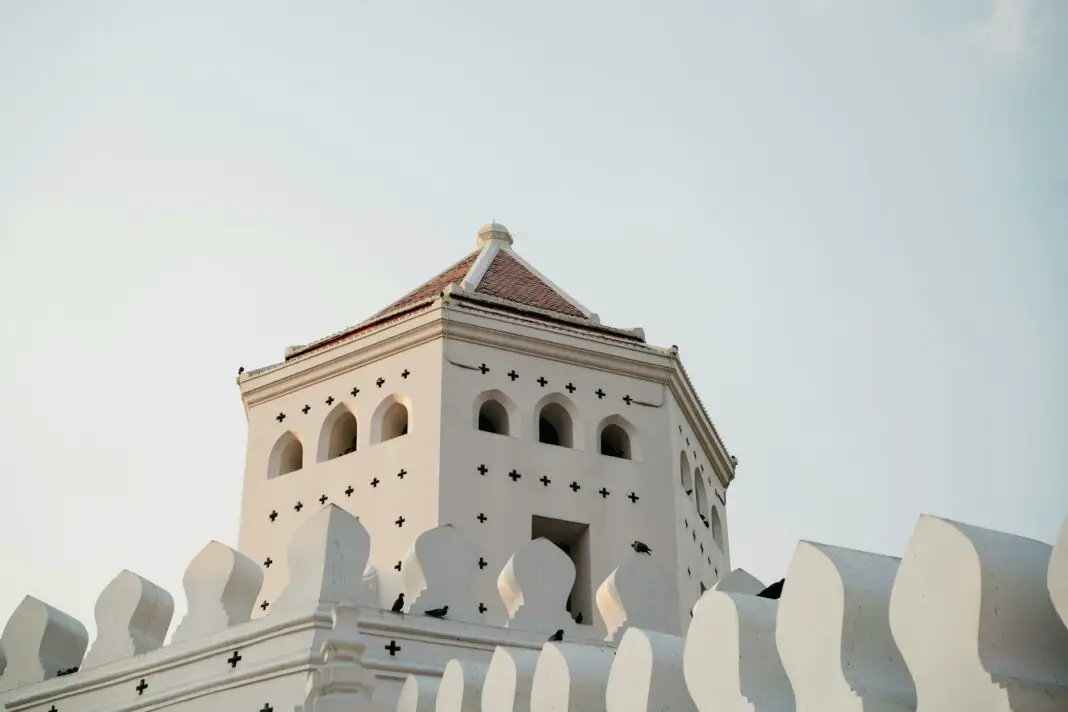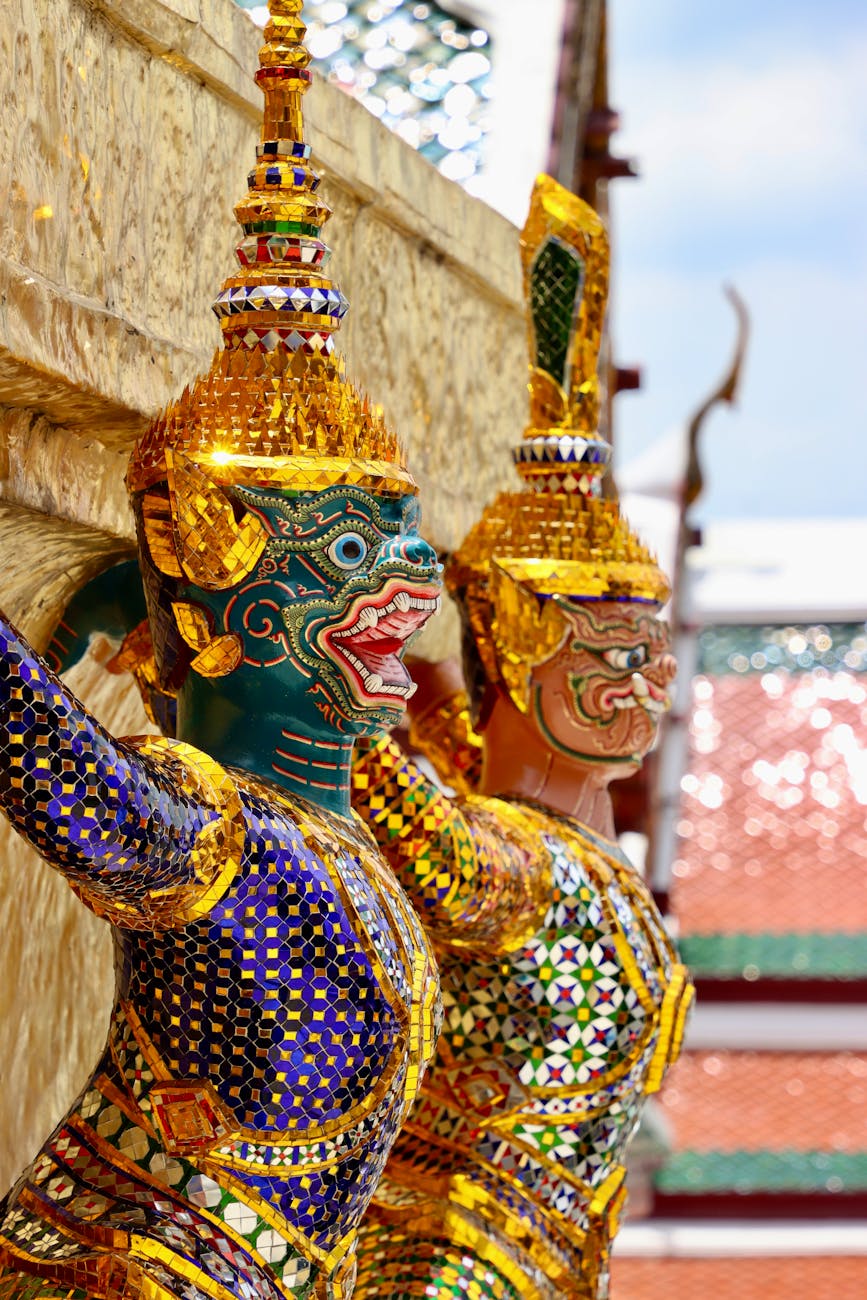Embarking on an Enriching Journey in Thailand
A trip to Thailand offers experiences that linger in our memories long after we leave. Among the countless wonders of this beautiful Southeast Asian country, participating in traditional Thai crafts workshops stands out as a unique opportunity that can profoundly enhance your travel experience. Imagine not just visiting a new place, but actively engaging with the culture through hands-on activities, allowing you to bring a piece of Thailand back home with you. This blog delves deep into how these workshops can transform an ordinary trip into an extraordinary cultural immersion, providing insights you won’t want to miss.
Thai craftsmanship intertwines artistry with history, reflecting the nuances of the local culture. From intricate silk weaving in Chiang Mai to delicate pottery in Sukhothai, engaging in these crafts connects travelers with the heart of Thai traditions. Beyond mere souvenirs, these experiences cultivate a sense of appreciation for the intricate skills passed down through generations. This blog post will explore this transformative journey through a detailed analysis of specific workshops, the craftsmanship involved, and the immense cultural benefits of engaging in these activities.
Table of Contents
- The Cultural Significance of Thai Crafts
- Exploring Unique Crafts Workshops
- The Hands-On Experience
- Creating a Personal Connection
- The Transformative Journey
- Taking Home More Than Souvenirs
- A Journey into Tradition
- Frequently Asked Questions
The Cultural Significance of Thai Crafts
Thai crafts are more than mere objects; they are expressions of Thailand’s rich culture and history. Each craft tells a unique story, rich with symbolism and heritage. For instance, traditional Thai pottery showcases techniques that have been used for centuries, and each piece reflects the local mythology and community values. Engaging with these crafts offers a deeper understanding, allowing travelers to connect emotionally with the local culture. By visiting artisans in their workshops, participants can see first-hand the dedication and time that goes into each piece, fostering respect and admiration.
Moreover, the spiritual significance attached to many of these crafts enhances their value. The intricate patterns found in traditional Thai silk, for example, are often inspired by the natural world and Buddhist teachings. By appreciating the craftsmanship, visitors contribute to the preservation of these traditions, ensuring that future generations can continue to experience the allure of Thai culture. This active participation not only enriches individual travel experiences but also aids in the sustainability of local crafts, celebrating the community’s artistic identity.
Exploring Unique Crafts Workshops
Thailand boasts a wealth of diverse workshops, each specializing in a different craft. Whether it’s learning the art of Muay Thai to appreciate its cultural significance or mastering the delicate techniques of Thai floral arrangement, there’s something for everyone. One can explore the vibrant world of Batik painting in southern Thailand, where intense colors and unique designs tell stories of the region. Each workshop provides a distinct take on craftsmanship, allowing travelers to immerse themselves fully in the process.
For instance, if you find yourself in Chiang Mai, try your hand at Lanna-style wood carving, a craft that has been practiced for centuries. In addition to honing your skills, you’re likely to meet artisans whose families have been sculpting wood for generations. Such encounters deepen your appreciation for the dedication required to preserve these crafts. Even in bustling cities like Bangkok, workshops abound, showcasing how traditional techniques blend with modern influences, illustrating the evolution of Thai arts. This cultural tapestry is a must-experience for any traveler seeking authenticity.
The Hands-On Experience
Immersing yourself in the creative process during workshops provides a transformative experience, unlike any traditional sightseeing. The tactile engagement with materials—be it clay, silk, or wood—creates a deeper emotional connection. Imagine molding soft clay into intricate shapes while an artisan guides you through each step of the process. This hands-on experience encourages personal expression and allows travelers to gain insights from local experts while exploring their own creativity.
Additionally, working alongside skilled craftsmen offers invaluable life lessons. You learn patience as you navigate the slow, meticulous process of crafting your piece. Engaging with artisans can also break down barriers, allowing conversations to flow naturally, sharing stories that enrich your understanding of Thai life and culture. This vibrant exchange is often more enlightening than any historical text, creating lasting memories and connections with the local community.
Creating a Personal Connection
Craft workshops naturally foster a sense of community and belonging. Engaging with artisans not only allows for the exchange of skills but also for sharing of stories, adding a personal touch to your travel experience. Such interactions deepen the traveler’s understanding of Thai culture through meaningful conversations with locals. It’s in these moments where connections are formed, transforming you from a mere observer into an active participant in the rich cultural tapestry of Thailand.
Additionally, creating your own keepsake during these workshops serves as a tangible connection to your experience. Each crafted piece carries a story unique to your journey, evoking sweet memories and reminding you of the skills you acquired. This connection becomes a cherished heirloom, allowing you to share your unique story with friends and family back home. The satisfaction of transforming raw materials into something beautiful creates confidence and inspires further exploration of creative pursuits.
The Transformative Journey
Traveling is often described as a transformative journey, but participating in traditional Thai craft workshops takes this experience to a whole new level. The immersive nature of these activities offers a deeper understanding of local culture while fostering personal growth and self-discovery. Experiencing the beauty and intricacies of Thai craftsmanship cultivates not only appreciation for the art but also of the communities that produce it.
Moreover, this transformation goes beyond the individual. By supporting local artisans, travelers contribute to the preservation of these age-old traditions, ensuring that they thrive. Witnessing firsthand the passion of skilled craftsmen ignites a desire to share these stories with others, creating a ripple effect that inspires more travelers to engage in similar experiences. As you return home, you carry not just souvenirs, but a narrative enriched by creativity, connection, and cultural heritage.
Taking Home More Than Souvenirs
One of the most rewarding aspects of participating in craft workshops is the unique souvenirs you create—each piece holds your story intertwined with Thai culture. Instead of generic trinkets you might find in local markets, these handcrafted items are imbued with memories and lessons learned. Consider how much more meaningful a hand-woven silk scarf becomes when you understand the labor and artistry involved in its creation.
These treasures challenge the conventional notion of souvenirs, suggesting that a personal experience can add layers of meaning to an object. Each time you wear that scarf or display pottery in your home, you’re reminded of the people you met, the skills you learned, and the culture you were privileged to experience. This resonates much more than traditional shopping experiences, making the journey all the more valuable and enriching.
A Journey into Tradition
Traveling through Thailand allows you to immerse yourself in an ancient culture. Engaging in traditional crafts workshops transforms your experience into something profound. By embracing local traditions, you foster connections that linger long after your trip ends, ultimately enriching your life. The memories forged amidst those creative experiences become fuel for your imagination and stories to cherish.
Opting to partake in craft workshops is a decision grounded in appreciation for art and community. It is a choice to embrace travel in a more meaningful way, one that contributes positively to local economies while enriching your own life. So, when planning your next trip to Thailand, remember that there lies an artistic world waiting to be uncovered—the possibilities for connection, growth, and discovery are limitless.
Frequently Asked Questions
What types of traditional crafts can I learn about in Thailand?
Thailand offers a rich variety of traditional crafts, including textile weaving, pottery, wood carving, and floral arrangement. Each region has its unique specialties, providing a diverse array of hands-on experiences that reflect the local culture.
How can I find workshops or artisans to work with during my trip?
Many travel agencies and local tour operators provide listings of workshops and artisans, or you can explore markets and community centers upon arrival. Online travel forums and social media groups are also great resources for recommendations and insights from fellow travelers.
Do I need prior skills to participate in these workshops?
Absolutely not! Most workshops cater to all skill levels, from beginners to advanced artisans. Workshops are designed to be inclusive, allowing everyone to learn at their own pace while having fun with the creative process.
Can I take the items I create home with me?
In most cases, you are encouraged to take your creations home as unique souvenirs that reflect your personal journey. Check with the workshop about any specific guidelines related to customs and regulations for bringing crafted items back home.
How do these experiences benefit local communities?
Participating in craft workshops directly supports local artisans and promotes the preservation of traditional skills. This engagement helps sustain the craftsman’s livelihood and strengthens cultural heritage, allowing communities to thrive while fostering appreciation for their art forms.
Image Credit: Pexels





